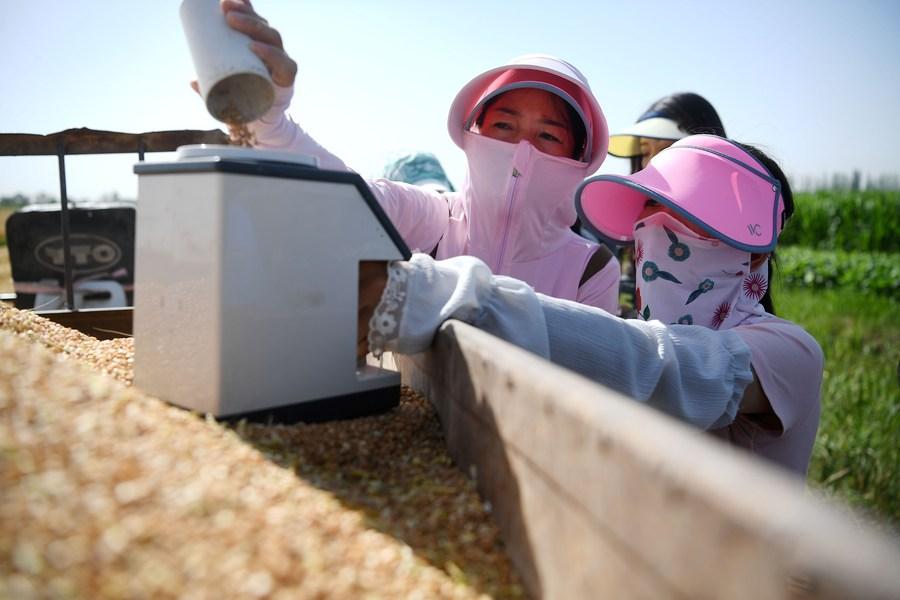UNITED NATIONS, Sept. 15 (Xinhua) -- A Chinese envoy on Thursday called for comprehensive measures to ensure food security in a meeting of the United Nations.
As a key element for realizing lasting peace and security, food security is also a long-standing challenge facing the international community, said Dai Bing, China's deputy permanent representative to the United Nations.
"We should stay calm and pragmatic, focus both on the present to resolve urgent matters and on the long-term to achieve the goal of eradicating hunger," he told a Security Council meeting on food security.
Armed conflicts undermine agricultural production, destroy agricultural infrastructure, disrupt trade and food, cause displacement, directly worsening the local food security situations. So long as there are conflicts and wars, the local populations will suffer from hunger. The international community should vigorously promote the political settlement of hot-spot issues and foster a peaceful and secure environment to ensure food security, he said.
He also stressed the need to ensure stable and smooth industrial and supply chains.
As UN Secretary-General Antonio Guterres said, there is enough food in the world for everyone, and the issue is about distribution. Major food exporters and countries with major grain companies should join efforts to curb acts of artificially inflating food prices, said Dai.
At present, due to many obstacles in bank settlement, insurance and shipping, millions of tonnes of Russian fertilizers are stranded in ports of Europe. It is imperative to remove such barriers to ensure the free and steady flow of key agricultural resources, he said.
There is also a need to help people in conflict areas tide over difficulties, he said.
In achieving food security, no one and no country should be left behind. The assistance to regions and countries in conflict can only go up, not down. Developed countries should earnestly fulfill their official development assistance commitments. International financial institutions and developed economies should step up their policy and financing support for developing countries facing special difficulties, he said.
At present, the world's food supply and demand pattern is characterized by food production highly concentrated in a few countries, and consumption highly dispersed geographically. Helping more countries enhance their self-sustained capacity of food is the most direct and effective means for improving food security, said Dai. "We should help relevant countries increase agricultural investment, support the early recovery and reconstruction of agricultural infrastructure, and strengthen support in agricultural technologies. Developed countries should reduce trade and technical barriers and offer more support to developing countries in funding, technology, market, and capacity-building."
As the most populous country in the world, China has managed to feed around one-fifth of the world's population with less than 9 percent of the world's arable land. This in itself is a major contribution to food security in the world. China will continue to work with all countries in the world to contribute even more to maintaining food security, said Dai.




 A single purchase
A single purchase









